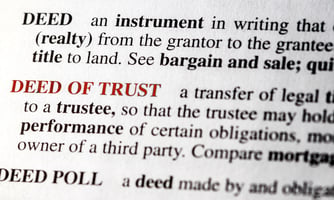Manage digital assets such as online accounts, social media profiles, and cryptocurrencies
CM Law's Ultimate List: The top 50 FAQs on Administration of Estates #23: Address Digital Assets
In today's digital age, managing digital assets has become a crucial aspect of estate administration in New South Wales, Australia. Digital assets include a wide range of items, such as online accounts, social media profiles, email accounts, digital files, and cryptocurrencies. Executors must navigate the complexities of digital asset management in accordance with applicable laws and the terms of service of various platforms. This section provides essential guidance on understanding digital assets, the role of the executor in their management, and the legal framework in NSW.
Understanding Digital Assets in Estate Administration
Digital assets are intangible assets that exist in electronic form. These assets can have both sentimental and monetary value and may require specific actions to access, manage, or transfer them after the account holder’s death. Executors must identify, secure, and manage these assets effectively to fulfill their responsibilities and protect the estate’s value.
Types of Digital Assets and Their Management
Executors should consider the following types of digital assets when administering an estate:
- Online Accounts: Email accounts, online banking, and other service accounts that may contain valuable information or funds.
- Social Media Profiles: Platforms like Facebook, Twitter, Instagram, and LinkedIn, which may need to be memorialized, deactivated, or deleted.
- Digital Files and Media: Photos, videos, documents, and other digital content stored on personal devices or in cloud storage.
- Cryptocurrencies: Digital currencies such as Bitcoin and Ethereum, which require specific knowledge to access and transfer securely.
- E-commerce Accounts: Accounts with platforms like eBay, Etsy, or Amazon, which may contain funds or inventory that must be managed or closed.
The Role of the Executor in Managing Digital Assets
The executor’s role in managing digital assets involves several key responsibilities:
- Identifying Digital Assets: Reviewing the deceased’s records, devices, and online accounts to identify all digital assets.
- Securing Access: Gaining access to digital assets by using passwords or other authentication methods and protecting them from unauthorized access.
- Contacting Service Providers: Notifying service providers of the account holder’s death and following their procedures to manage, transfer, or close accounts.
- Distributing or Deleting Assets: Deciding which digital assets should be transferred to beneficiaries, sold, or deleted in accordance with the will and applicable laws.
- Maintaining Privacy and Security: Ensuring that all actions taken with digital assets are secure and comply with privacy laws and regulations.
Legal Framework Governing Digital Assets in NSW
In NSW, the management of digital assets falls under various laws, including the Succession Act 2006 (NSW) and the Privacy Act 1988 (Cth). Executors must also comply with the terms of service agreements of digital platforms, which can vary widely and may restrict access or require specific documentation to manage the deceased's digital accounts. Executors should seek legal advice if they are unsure about their responsibilities regarding digital assets to avoid potential liability.
Case Study: Complexities in Managing Digital Assets in an NSW Estate
Case Overview
In the case of Re Estate of Daniels [2023] NSWSC 517, the executor faced significant challenges in managing the deceased’s extensive digital assets, including cryptocurrency holdings and numerous online accounts. The estate comprised a digital wallet containing Bitcoin valued at $750,000, social media profiles with substantial sentimental value, and various online subscriptions. Due to the executor’s initial lack of understanding of digital asset management, the estate encountered delays and financial losses.
Behavior of the Participants
The executor, a sibling of the deceased, struggled to comprehend the scope of the digital assets involved. Initially, they focused on managing traditional assets like real estate and bank accounts, underestimating the complexity and value of the digital assets. As time passed, the executor became overwhelmed by the technical aspects of accessing and managing cryptocurrency wallets and online accounts.
The beneficiaries, realizing the significance of the digital assets, grew increasingly anxious. They repeatedly requested updates from the executor, who seemed evasive and uncertain about the next steps. Frustration turned to desperation as the beneficiaries feared losing valuable digital assets due to the executor's inaction. Tensions escalated, and they felt compelled to take legal action to protect their interests.
Legal Process and Court Involvement
The beneficiaries filed an application with the NSW Supreme Court to remove the executor for failing to manage the digital assets effectively. The court reviewed evidence, including the executor's attempts to access the cryptocurrency wallet without professional guidance, which resulted in lost access keys and potential financial loss.
The court found that the executor had not fulfilled their fiduciary duty and ordered the appointment of an independent digital asset specialist to manage the estate’s digital assets. The specialist successfully retrieved access to the digital wallet, secured the online accounts, and facilitated the proper transfer of digital assets to the beneficiaries.
Financial Consequences
The estate suffered significant financial consequences due to the executor's mismanagement of digital assets. The delayed retrieval of the cryptocurrency wallet resulted in a market value loss of $100,000 due to fluctuations. The legal costs associated with the court proceedings and the appointment of the digital asset specialist totaled $120,000. Additionally, fees for professional services to manage digital accounts and secure data added another $30,000 to the estate's expenses. These losses significantly reduced the overall value of the estate, impacting the beneficiaries' expected inheritance.
Lessons Learned
- Understand Digital Assets: Executors must recognize the importance of digital assets and act promptly to manage them.
- Seek Expert Assistance: Engaging professionals with expertise in digital assets can help prevent losses and ensure compliance with legal requirements.
- Maintain Transparency: Executors should keep beneficiaries informed about the status of digital asset management to build trust and prevent disputes.
Statistics on Estate Administration and Digital Asset Management in NSW
- Digital Asset Disputes: Approximately 10% of estate disputes in NSW now involve digital assets.
- Executor Mismanagement: Around 14% of estates face issues due to executor mismanagement of digital assets.
- Legal Costs: The average legal cost for disputes involving digital assets in NSW ranges from $70,000 to $200,000.
- Executor Removal: About 6% of probate cases in NSW result in the removal of an executor due to mismanagement related to digital assets.
- Loss of Digital Assets: Estates in NSW face an average loss of 15-20% in digital asset value due to delayed or improper management.
- Resolution Time: Digital asset-related disputes typically take 10 to 18 months to resolve through court proceedings.
- Impact on Beneficiaries: Beneficiaries involved in disputes over digital assets may see a reduction of 10-20% in their expected distributions.
- Mediation Success: Mediation resolves about 60% of digital asset disputes in NSW without a full court hearing.
- Complaints to Legal Authorities: The NSW Legal Services Commissioner receives around 90 complaints annually related to digital asset management in estates.
- Professional Digital Asset Specialist Appointment: Approximately 5% of estates in NSW involve the appointment of a digital asset specialist due to mismanagement or disputes.
Resources
Government Resources
- NSW Government – Wills, Probate, and Inheritance
URL: https://www.nsw.gov.au/law-and-justice/wills-probate-and-inheritance - NSW Supreme Court – Probate
URL: https://www.supremecourt.justice.nsw.gov.au/Pages/sco2_probate/probate.aspx - Office of the Australian Information Commissioner – Digital Privacy
URL: https://www.oaic.gov.au/privacy/digital-privacy - NSW Trustee and Guardian – Digital Assets Management
URL: https://www.tag.nsw.gov.au/digital-assets-management - NSW Law Reform Commission – Digital Estate Laws
URL: https://www.lawreform.justice.nsw.gov.au
Non-Profit Organizations
- Justice Connect – Digital Asset Management Support
URL: https://justiceconnect.org.au/resources/digital-asset-support - The Law Society of New South Wales – Digital Estate Planning
URL: https://www.lawsociety.com.au/legal-help/probate-estate-administration/digital-estate-planning - NSW Community Legal Centres – Executor Guidance for Digital Assets
URL: https://www.clcnsw.org.au/digital-assets-guidance - Seniors Rights Service – Digital Estate Management
URL: https://seniorsrightsservice.org.au/digital-estate-management - Financial Rights Legal Centre – Digital Asset Management
URL: https://financialrights.org.au/digital-asset-management



